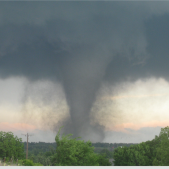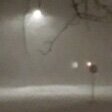-
Posts
17,998 -
Joined
-
Last visited
About michsnowfreak

- Birthday 05/08/1983
Contact Methods
-
Website URL
http://www.facebook.com/josh.halasy
Profile Information
-
Four Letter Airport Code For Weather Obs (Such as KDCA)
KDTW
-
Gender
Male
-
Location:
Wyandotte, Michigan
Recent Profile Visitors
-
What goes up must come down. The region saw a slew of unusually snowy winters in the 2000s-10s. Many areas of the Great Lakes and northeast saw their snowiest decade on record in the 2010s. It was an unrealistic pace that came down. Avg annual snowfall at Detroit is around 43". The past 10 years averaged 39.1" but the previous 10 years 53.3". Avg annual snowfall at Chicago is around 37". The past 10 years averaged 31.9" but the previous 10 years 46.9".
-
Absolutely ebbs and flows. Its just how the weather goes. Its VERY rare to get continuous action all winter long, and Chicago had a fairly snowy Nov, Dec, & Jan. Imagine how it is on the east coast when snowfall is even far less frequent, and not knowing how many years til the next big noreaster. 1890-91: Chicagos snow depth on Jan 5th was 1"...they wouldnt see that again until 4.7" of snow hit March 2nd. 1930-31: Chicago had a dry winter with very little snowfall. The snow depth never exceeded 1" through February. In fact, after a snow depth of 1" on Jan 21st, Chicago would see bare ground (few days of T depth) until March 7th when a 16.2" snowstorm belted them. 1991-92: February saw no snow on the ground, but a 8.8" snowstorm hit Chicago March 21st. 2016-17: Jan-Feb combined for just 0.6" of snow at Chicago. No days had 1"+ snowcover from Dec 26 until March 13th, when a 7.3" snowstorm hit. Theres many more similar examples.
-

Winter 2025-26 Medium/Long Range Discussion
michsnowfreak replied to michsnowfreak's topic in Lakes/Ohio Valley
Who says the NW flow will be all dry? -

2025-2026 ENSO
michsnowfreak replied to 40/70 Benchmark's topic in Weather Forecasting and Discussion
Now show the Euro, the Euro ensemble, the AI Euro, the AI Euro ensemble, the AI GFS, the AI GFS ensemble, the GFS ensemble, and the GEM ensemble at 12z for that same hour 294. -

2025-2026 ENSO
michsnowfreak replied to 40/70 Benchmark's topic in Weather Forecasting and Discussion
I would have bet money the weeklies would cool at least week 3 seeing how all the ensembles look by mid month. -

Winter 2025-26 Medium/Long Range Discussion
michsnowfreak replied to michsnowfreak's topic in Lakes/Ohio Valley
Remember, while a big snowstorm can happen, im simply referring to getting accumulating snow. I dont think you realize how rare it is to get NO measurable snow after Feb 28th. Since 1884, it happened once at Chicago (1994) and since 1880 it happened twice at Detroit (1946, 2010). In 2010 we had snow on the ground to start March, so only 1946 saw no semblance of measurable snow after Feb 28. -
Very unusual to such a large temp difference between Chicago and Detroit. DTW (27.8°) was 5.3° colder in Feb than Chicago. For the winter, Detroit finished 1.8° colder than Chicago. Detroit experienced the 7th driest Feb (0.39"). Though only 4.9" of snow fell, significant snowcover was present the first half of the month.
-

Winter 2025-26 Medium/Long Range Discussion
michsnowfreak replied to michsnowfreak's topic in Lakes/Ohio Valley
I understand. My entire point was that snowfall potential us nowhere near done. -

2025-2026 ENSO
michsnowfreak replied to 40/70 Benchmark's topic in Weather Forecasting and Discussion
MET Winter 2025-26 at Detroit DJF avg temp: 25.2F (-3.2F) 43rd coldest out of 153 years Coldest since 2014-15 Coldest temp: -10F on Jan 24 # of days with a low below 0F: 5 (most since 2018-19) # of days with a low 9F or colder: 21 (most since 2014-15) # of days with a low 32F or colder: 84 (most since 2013-14) # of days with a HIGH 32F or colder: 45 (most since 2014-15) DJF precip: 3.92” (-2.64”) 17th driest out of 153 years Driest since 2020-21 DJF snowfall: 32.9” (-2.5”) 51st snowiest out of 153 years Snowiest since 2020-21 Largest snowstorm: 6.1” – Jan 14/15 Season snowfall thru 2/28- 38.8” (+1.5”) Days with 1”+ snowcover: 61 (most since 2013-14) Days with 6”+ snowcover: 21 (most since 2014-15) Peak snow depth: 9” (Jan 26, Jan 27, Jan 28, Jan 29, Feb 7) 19th most days with 1”+ snowcover out of 121 years Insane stat- In a winter full of deep cold and white ground, we managed to touch 60F+ 3 times this cold winter. Each time was a very brief but rapid spike. While not close to the record of 7, these 3 days were spaced out one in each month DJF. This is only the 2nd time on record this occurred. The other time was a very warm winter (1889-90). Lets compare- In an era when everyone wants to compare things to CC, the irony is that this winter most closely resembled a handful of winters from the 1900s-1910s. The cold temperatures, frequent snowfall, and solid blanket of snow that covered the ground most of the time but without any huge storms, and with NO big precip makers, is a throwback to the colder, drier climate of that era. Two in a Row- This is the 2nd colder than normal winter in a row. Last winter finished 0.9F below avg and this one 3.2F below avg. Last winter saw average snowcover despite below avg snowfall, so this is also 2 years in a row where snow covered the ground in a greater capacity than would be expected with the amount of snow that fell. If I had to guess- Ill say next winter locally will be milder with less snowcover but a bigger snowstorm than each of these past 2 winters. -

Winter 2025-26 Short Range Discussion
michsnowfreak replied to SchaumburgStormer's topic in Lakes/Ohio Valley
MET Winter 2025-26 at Detroit DJF avg temp: 25.2F (-3.2F) 43rd coldest out of 153 years Coldest since 2014-15 Coldest temp: -10F on Jan 24 # of days with a low below 0F: 5 (most since 2018-19) # of days with a low 9F or colder: 21 (most since 2014-15) # of days with a low 32F or colder: 84 (most since 2013-14) # of days with a HIGH 32F or colder: 45 (most since 2014-15) DJF precip: 3.92” (-2.64”) 17th driest out of 153 years Driest since 2020-21 DJF snowfall: 32.9” (-2.5”) 51st snowiest out of 153 years Snowiest since 2020-21 Largest snowstorm: 6.1” – Jan 14/15 Season snowfall thru 2/28- 38.8” (+1.5”) Days with 1”+ snowcover: 61 (most since 2013-14) Days with 6”+ snowcover: 21 (most since 2014-15) Peak snow depth: 9” (Jan 26, Jan 27, Jan 28, Jan 29, Feb 7) 19th most days with 1”+ snowcover out of 121 years Insane stat- In a winter full of deep cold and white ground, we managed to touch 60F+ 3 times this cold winter. Each time was a very brief but rapid spike. While not close to the record of 7, these 3 days were spaced out one in each month DJF. This is only the 2nd time on record this occurred. The other time was a very warm winter (1889-90). Lets compare- In an era when everyone wants to compare things to CC, the irony is that this winter most closely resembled a handful of winters from the 1900s-1910s. The cold temperatures, frequent snowfall, and solid blanket of snow that covered the ground most of the time but without any huge storms, and with NO big precip makers, is a throwback to the colder, drier climate of that era. Two in a Row- This is the 2nd colder than normal winter in a row. Last winter finished 0.9F below avg and this one 3.2F below avg. Last winter saw average snowcover despite below avg snowfall, so this is also 2 years in a row where snow covered the ground in a greater capacity than would be expected with the amount of snow that fell. If I had to guess- Ill say next winter locally will be milder with less snowcover but a bigger snowstorm than each of these past 2 winters. -

Winter 2025-26 Medium/Long Range Discussion
michsnowfreak replied to michsnowfreak's topic in Lakes/Ohio Valley
Not true. I understand youre still relatively new to the region, but March/April climo is its own entity. Unless an abnormally cold pattern is in place to start March, this is the end of deep/sustained winter for the southern Lakes. However the mere chance of a snowstorm, much less measurable snow, is very much there into mid April amd sometimes beyond. -
You were right in the narrow heaviest band of 3-3.5" snow. We only got a trace here
-
The models did absolutely horrendous with this event up to and including now cast time.
-

2025-2026 ENSO
michsnowfreak replied to 40/70 Benchmark's topic in Weather Forecasting and Discussion
It was. Im surprised you didnt know, this thread has taken more of an interest in the West for some reason () than it ever has before during this winter which has been cold where the majority of this forums posters live. -
Theres a blast from the past! Wonder how hes doing?



.thumb.jpg.ad3a2e31d30aff035044689b311a0540.jpg)





